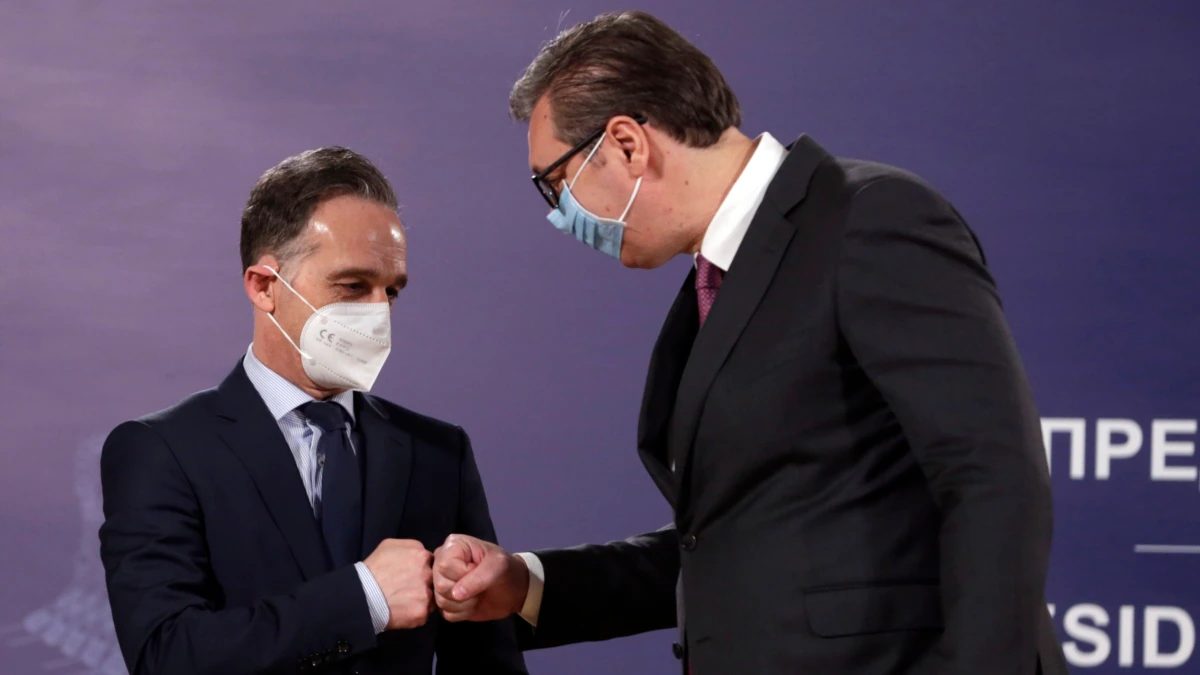
Germany has called on Serbia and Kosovo to step up efforts toward a normalization of their relationship, more than two decades after Belgrade lost control of its former southern province in 1999.
“The time is right for continuing the normalization process — and to achieve results,” Foreign Minister Heiko Maas said at a live-streamed news conference after meeting Serbian President Aleksandar Vucic in Belgrade on April 23.
“It is important not to hold this dialogue just for dialogue’s sake, there must be results. Germany stands ready to help in this respect,” Maas added.
For his part, Vucic said that Serbia wants to reach a compromise solution with Kosovo and was ready to continue the dialogue.
“Serbia is not looking for excuses to refuse to reach a compromise,” Vucic said, adding that Belgrade believes that a frozen conflict is always in danger of being reignited.
Serbia was forced to cede control over Kosovo in 1999 after a U.S.-led NATO campaign ended Belgrade’s crackdown against Kosovo’s ethnic Albanian separatists. More than 10,000 people died in the 1998-99 Kosovo conflict.
Kosovo declared independence in 2008 but Belgrade does not recognize this. Most EU members and the United States have recognized Kosovo’s independence, but not Serbia’s allies Russia and China.
Vucic, in an April 22 interview from Belgrade with the Washington-based Atlantic Council think tank, said he was also actively seeking stronger ties with the United States.
Vucic, who has met U.S. President Joe Biden five times, described the U.S. president as “politically the best prepared man I ever talked to.”
Vucic, however, admitted there are difficulties in the bilateral relationship, especially differing views on peace talks with Kosovo.
Biden has considerable Balkan experience and was engaged with the region while serving as vice president from 2009 to 2017.